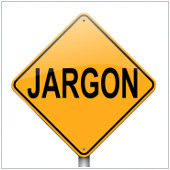 Trying to fix your broken IT can be challenging. You may struggle to clearly define your problem, which can lead to frustration for both you and your IT repairman. So we’ve created a list of some common tech terms to help you communicate more easily with the technology geeks of the world. Here are a few to get you started.
Trying to fix your broken IT can be challenging. You may struggle to clearly define your problem, which can lead to frustration for both you and your IT repairman. So we’ve created a list of some common tech terms to help you communicate more easily with the technology geeks of the world. Here are a few to get you started.
App – These days when someone hears the word “app”, they usually think of a program for their tablet or smartphone; however, the word “app” actually has a much more broader meaning. Apps, which is short for applications, have been around since the birth of computers, and the word really refers to any type of computer program. Some examples of common apps used today include Microsoft Word, Adobe Photoshop, and Symantec Antivirus.
Browser – Your window to the Internet, a browser enables you to access all the information there is online. In fact, the Internet is virtually inaccessible without the use of a browser, and you’re likely reading this article on a browser right now. Google Chrome, FireFox, and Microsoft Edge are a few examples of common browsers.
Search Engine – Not to be confused with a browser, a Search Engine is a page you visit within your browser that allows you to search and find what you’re looking for on the web. You type keywords or phrases into a Search Engine, press enter, and then the web pages and files that contain those phrases and keywords are presented to you. Google, Bing and Yahoo! are a few of the Search Engines available.
Hard drive – A hard drive is essentially a storage unit for everything on your computer. Everything from your operating system to applications, such as Excel and PowerPoint, are stored on your hard drive, and it allows your computer to access these files and programs for your use. The more hard drive space you have, the more applications, videos, documents and various files can be stored on your computer.
Motherboard – If your computer had a heart, the motherboard would be it. The motherboard is a circuit board that powers your RAM, CPU and hardware, enabling it all to communicate with each other. If the motherboard is taken out of the equation, your computer will be unable to operate.
CPU/Processor – If the motherboard is the heart of the computer, then the CPU, or Central Processing Unit, is the brains. A CPU carries out the instructions it receives from the different hardware and software operating on the computer. At one point or another, everything on your computer goes through the CPU. And the more powerful it is, the faster it will be able to operate and the more advanced applications you’ll be able to run.
RAM – Random Access Memory stores all the temporary programs and data that your computer is currently using so they can quickly be accessed by your computer’s CPU. For example, if you are running Microsoft Word, Google Chrome, Adobe Reader, and Skype all at the same time, RAM enables you to access them fast – without having to reopen them every time. The more RAM you have the quicker these programs will run. Once your computer shuts down, it will no longer store these programs in the RAM, but instead in the hard drive.
These are just a handful of terms a layperson may come across when asking for technology service or talking about computers. If you’d like to learn more about the tech talk that is native to us IT professionals, or have any concerns with your current IT, don’t hesitate to get in touch.

 The holiday season is approaching fast, and many people are currently looking to purchase presents for their loved ones. Tech items like computers are likely to be among the most popular gifts. But there are so many different computers out there, meaning that finding the perfect one can be difficult. We’ve outlined some tips that will help you understand more about computer parts and how to make the right choice.
The holiday season is approaching fast, and many people are currently looking to purchase presents for their loved ones. Tech items like computers are likely to be among the most popular gifts. But there are so many different computers out there, meaning that finding the perfect one can be difficult. We’ve outlined some tips that will help you understand more about computer parts and how to make the right choice.